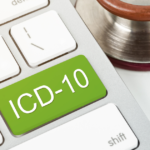
The Importance of Accurate ICD-10 Coding in Medical Billing
April 5, 2024
Breaking Down the Complexities of Myofascial vs. Oral Surgery Billing Practices
May 3, 2024Behavioral health providers face unique challenges when it comes to billing and revenue management. From navigating complex insurance requirements to managing multiple clients and treatment plans, the administrative tasks involved in billing can be overwhelming and time-consuming. This is where optimal billing solutions come in.
Optimal billing solutions are specialized software programs designed specifically for behavioral health practices. They streamline the entire billing process, from creating claims to tracking payments and generating reports. With these solutions, providers can save time, reduce errors, and ultimately maximize their revenue and efficiency.
In this section, we will explore the key features of optimal billing solutions that make them an essential tool for any behavioral health practice.
1. Automated Claim Creation
One of the most time-consuming tasks in billing is creating claims for each client’s treatment session. Optimal billing solutions automate this process by pulling information directly from client records and treatment plans. This eliminates the need for manual data entry, reducing errors and saving valuable time.
2. Electronic Claims Submission
With optimal billing solutions, providers can submit claims electronically instead of mailing them on paper. This significantly speeds up the reimbursement process as electronic claims are processed faster than paper ones. It also reduces costs associated with printing and postage.
3. Insurance Verification
Verifying insurance coverage is a crucial step in ensuring timely reimbursements from insurance companies. However, it can be a tedious task that requires constant follow-up with payers’ offices. Optimal billing solutions simplify this process by automatically checking patient eligibility before each appointment.
4. Payment Tracking
Keeping track of payments from different sources such as insurance companies or clients can be challenging for busy providers. Optimal billing solutions help with this by providing a centralized system for tracking all payments received or outstanding.
5. Reporting Capabilities
Optimal billing solutions offer robust reporting capabilities that provide valuable insights into practice performance, including revenue trends, claim rejections rates, payer mix analysis, etc. This information can help providers make more informed decisions to improve their billing processes and overall practice efficiency.
Optimal billing solutions are a game-changer for behavioral health practices looking to maximize revenue and efficiency. With automated claim creation, electronic submission, insurance verification, payment tracking, and reporting capabilities, these solutions streamline the entire billing process. By using optimal billing solutions, providers can save time, reduce errors, and ultimately increase their bottom line while focusing on what they do best - providing quality care to their clients.
Understanding Behavioral Health Billing
Behavioral health billing refers to the process of submitting claims and receiving payments for services related to mental health or substance abuse treatment. It is a crucial aspect of managing a behavioral health practice, as it directly impacts the revenue and efficiency of the organization.
One of the key aspects of understanding behavioral health billing is knowing the different types of services that can be billed. These include individual therapy, group therapy, family therapy, medication management, and other specialized interventions such as psychoeducation classes or case management. Each service has its own specific billing codes that must be accurately used in order to receive reimbursement from insurance companies.
In addition to understanding the services that can be billed, it is also important to have a thorough knowledge of insurance policies and coverage plans. This includes knowing which insurance companies your practice is contracted with, what types of services are covered under each plan, and any limitations or restrictions on coverage. Insurance policies can often be complex and confusing, so it is essential for providers to keep up-to-date on changes and updates in order to bill correctly.
Another critical aspect of behavioral health billing is proper documentation. Insurance companies require detailed documentation in order to process claims efficiently. This includes progress notes that outline the type and length of each service provided, diagnosis codes that justify medical necessity for treatment, and any additional supporting documents such as treatment plans or referrals. Accurate documentation not only ensures timely payment but also helps in defending against potential audits.
Understanding how fees are determined for services provided is also important in maximizing revenue through behavioral health billing. The rates charged for different services vary depending on factors such as location, level of care provided, and complexity of the service being rendered. It’s important for providers to establish competitive rates while also considering their overhead costs.
Having knowledge about the various forms needed for successful billing is crucial. This may include claim forms such as CMS 1500 or UB-04s which are used when submitting electronic claims to insurance companies. It may also include prior authorization forms that are required for some services or insurance plans. Having a solid understanding of these forms and their proper usage is essential for efficient billing.
Understanding behavioral health billing is vital in maximizing revenue and efficiency within a practice. Providers must be knowledgeable about the types of services that can be billed, insurance policies and coverage plans, documentation requirements, fee structures, and various billing forms. By having a strong understanding of these components, providers can ensure timely reimbursement and optimize the financial success of their practices.




